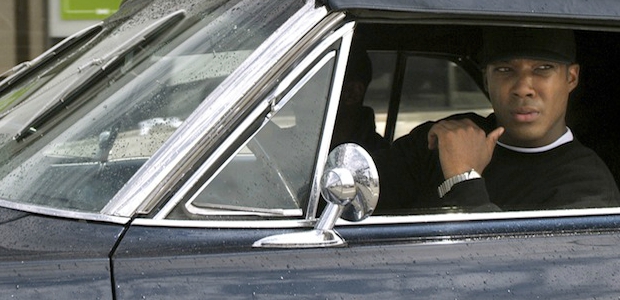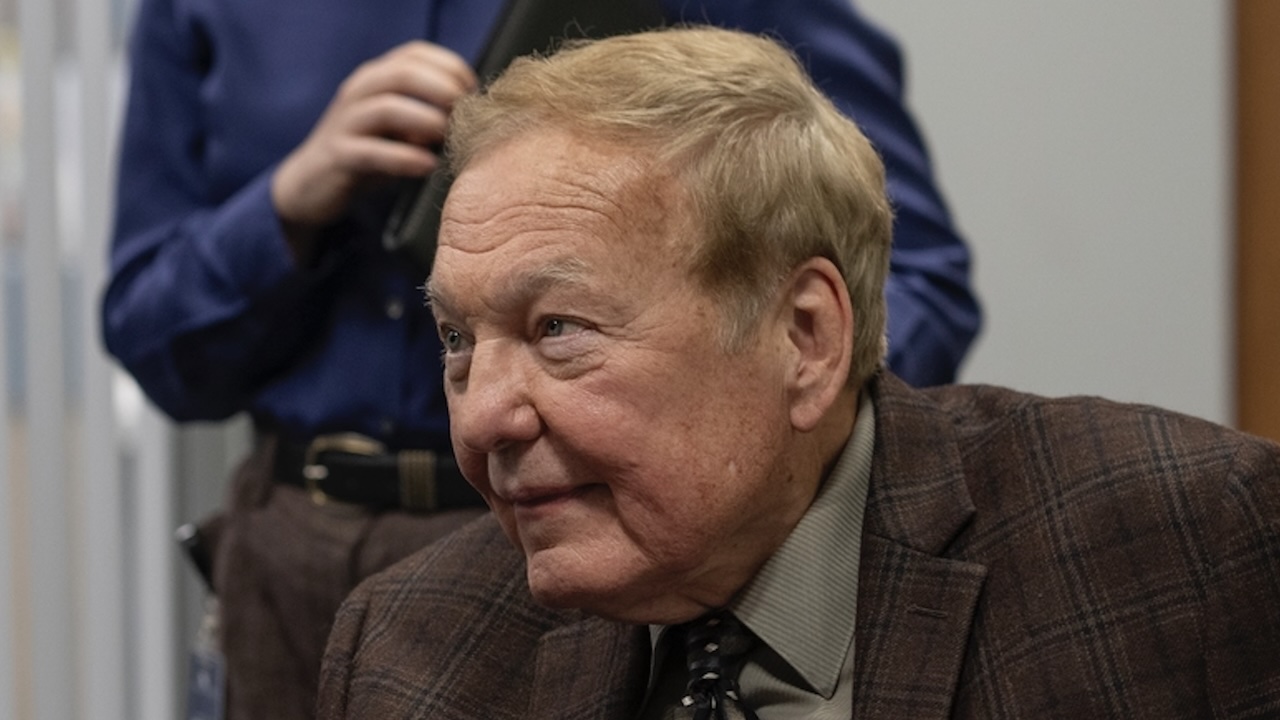O’Shea Jackson Jr. already had a greater responsibility than his co-stars in Straight Outta Compton. While Corey Hawkins, Jason Mitchell, Neil Brown Jr. and Aldis Hodge played Dr. Dre, Eazy-E, DJ Yella and MC Ren, respectively, Jackson was tasked with portraying his father, legendary rapper Ice Cube. This opportunity, which doesn’t come along all that often for an actor, is both exciting and daunting. But for 24-year-old Jackson, making his acting debut in the film about the iconic rap group N.W.A., he not only rises to the challenge, he far exceeds expectations. It’s his uncanny ability to embody his father, from his presence to his quirks, that gives the film its oomph.
His co-stars, especially Hawkins as Dre and Mitchell as Eazy-E, are not to be overshadowed, either. Though these guys have been building up their resumes for some time, they’ve been waiting for their scene-stealing roles. They come with this film. It’s more impressive, too, when you consider the implications of something like Straight Outta Compton, which is about the rise and fall of N.W.A. That’s already a lot to accomplish. As a colleague remarked while exiting the screening, you could make an entire trilogy of films out of this backstory alone — one focusing on how the group formed during the violent climate of Compton, California; one about splitting off to pursue solo ventures; and perhaps a third about Eazy-E’s struggle with and eventual death from AIDS. For better or worse, director F. Gary Gray (the man behind Ice Cube’s Friday) and his team of writers chose to address all of this in one film. That is not an easy task, but you can tell, despite its faults, that audiences will easily invest themselves in this story.
For one, Straight Outta Compton begins and ends on high notes, though it loses its way in the middle. The film opens with Eazy-E, aka Eric Lynn Wright. He pounds on his cousin’s door to settle a dispute about drug money, and it’s clear that things are about to get heated. However, it quickly turns into a frantic, acrobatic escape as armed police tear a hole through the home with an armored car and battering ram. The film is at its best with moments like this one, moments that encapsulate what life was like for these kids trying to survive not only the police but also gang violence and the harsh realities that come with wanting more than what life thrust upon them. This struggle draws a direct line to the present day. As N.W.A. watches footage of a black man brutally beaten by a gang of police officers in the streets, we (in 2015) are dealing with the aftermath of events surrounding people like Sandra Bland.
The story of N.W.A. remains relatable as Dre puts the idea in E’s head to invest money in their music and “reality raps,” as they call it. However, it eventually stumbles against a flood of information. Once N.W.A. is formed and the guys are signing with their first record label, Priority Records, the film devolves into a series of quickly shifting scenes woven in between a few too many montages that involve parties, half-naked (and some fully naked) dancing women, and clowning around making records. There’s a lot of story that needed to be pushed out in two-and-a-half hours, but rushing through the material leaves little opportunity to explore more emotionally charged moments in these men’s lives. Some casualties in this regard were the death of Dre’s younger brother, a split-second moment that only touches upon the tension between East and West coast rappers; Dre meeting his future wife, Nicole; E’s physical deterioration; and even one lighter but random moment where we see Cube working on the script for Friday in the background.
By the end, however, the story regains its footing for a gripping look at Eazy-E’s final moments. And that brings me back to the actors’ performances. At this point in the film, the N.W.A. crew has gone from boys to men, and the shift in the actors’ approach is apparent. Their voices get deeper, and their postures and walks shift to accommodate the grown men who lived these lives, and in doing so it reinforces their commitments to these roles. Straight Outta Compton is built on these roles, and though the storytelling may not be fully capable of bearing the weight of so much plot, you’ll want to break out your old N.W.A. albums and re-watch Boyz n the Hood and Friday, especially after Jackson exclaims, “Bye, Felicia!”
Your Daily Blend of Entertainment News

